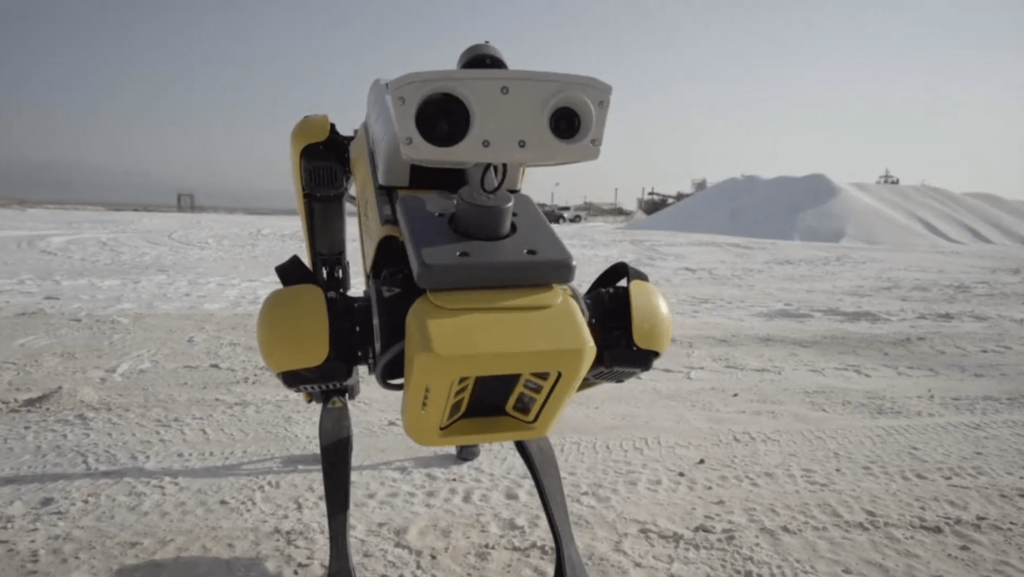TIME magazine recognised four Israeli tech firms to its annual list of 100 Best Inventions for products “that are transforming how we live, work, play, and think about what’s possible,” the journal said on Wednesday.
COVID-19 vaccinations, a toy robot to help sick children, a smart shoe, a concealed breast pump, a revolutionary pasta form, waterless hair care products, and eco-friendly dye for jeans are among the 100 “groundbreaking inventions” on the worldwide list.
TIME solicited nominations from its editors and journalists throughout the world, as well as through an online application process, to assemble the 2021 list. After that, the judges weighed in on “important characteristics such as originality, innovation, efficacy, ambition, and impact” for each competitor.
TIME magazine honours innovations that “are making the world better, wiser, and even a little more fun” every year.
Accessibility, artificial intelligence, apps and software, augmented and virtual reality, beauty, connectivity, consumer electronics, design, education, entertainment, experimental, finance, fitness, food and drink, home health, household, medical care, outdoors, parenting, productivity, robotics, social good, style, sustainability, toys and games, transportation, travel, wellness and speech were among the technologies and products on display this year.
TIME included six Israeli innovations in its list for 2020, up from nine the year before. Here are four notable Israeli innovations and businesses:
1. OrCam Read

OrCam Read is a smart reading assistance device created by OrCam Technologies, a producer of artificial intelligence-based wearable gadgets that assist the blind and visually handicapped in reading texts through auditory feedback. In 2020, the business released OrCam Read, a portable digital reader designed to assist persons with language processing issues such as dyslexia. The $1,990 gadget collects and scans complete pages of text and digital screens, as well as responding to voice instructions.
OrCam was created in 2010 by Amnon Shashua and Ziv Aviram, who were also the founders of the vehicle technology company Mobileye, which was sold to Intel Corp. for $15.3 billion in 2017.
The OrCam MyEye, an artificial intelligence-powered gadget that attaches to the frame of spectacles and can recognise people or currencies or read a text or other information aloud, is a repeat inclusion in TIME’s 100 top innovations list, earning a slot in 2019.
The accessibility category included the OrCam Read.
2. Percepto AIM

Percepto AIM is a software tool developed by Percepto, an Israeli drone security business. For critical infrastructure and industrial facilities such as power plants, refineries, and mines, the company employs on-site drones and robots to automate inspections, emergency response, and security.
Dor Abuhasira, Sagi Blonder, Raviv Raz, and Ariel Avital launched the firm in 2014. It employs 75 employees and has a development centre in Modi’in as well as offices in the United States and Australia. Fortune 500 companies in more than ten countries, including Italy’s ENEL, Florida Power and Light, and Verizon, employ Percepto’s products, according to the company.
“It is truly an honor to receive this award from TIME, a great and respected media brand for nearly a hundred years,” Abuhasira said in a press statement in response to the recognition. “Percepto created a new paradigm for industrial facility inspection by integrating AI and autonomous robot management with advanced visual data analysis. Being on this list is a testament to this accomplishment, and we thank the editors and staff at TIME for this recognition.”
3. SupPlant

SupPlant is an Israeli agtech (agricultural technology) firm that develops sensing technologies for farming.
SupPlant, which was founded in 2015, claims to use plant sensing, artificial intelligence, and gathered data to give producers irrigation suggestions that help them make better decisions. According to the firm, their product “dramatically improves water usage efficiency, produce amount, and quality.”
Its most recent initiative is an irrigation platform for India’s and Sub-Saharan Africa’s 450 million smallholder farmers.
SupPlant was featured in the category of sustainability.
4. ElectReon

ElectReon, an Israeli wireless “smart road” tech business, has developed a technology that allows electric cars (EVs) to be charged while in motion.
Founded in 2013, ElectReon’s wireless charging system transfers energy from the power grid to the road and manages communication with approaching automobiles using copper coils installed beneath the tarmac. Receivers are put on the cars’ floors to send energy directly to the engine and battery while they are in motion, eliminating worries about restricted driving range and battery lifespans.
Last month, the business announced a new agreement with the Tel Aviv-Jaffa Municipality and the Dan Bus Company to begin a large-scale commercial deployment of its wireless charging infrastructure in Tel Aviv to power electric buses.
Former Israeli President Reuven Rivlin was named president of ElectReon last summer, with the goal of “enhance[ing] the company’s partnership with governments and global enterprises, as well as sharing our operations with decision-makers throughout the world.”
ElectReon was created in 2013 and is situated in Beit Yannai, a town in northern Israel. In Germany, France, and Belgium, it has a number of ongoing agreements to test its smart road technology.
In Sweden, ElectReon erected a 1.65-kilometer (1-mile) electric stretch on the 4.1-kilometer (2.5-mile) road between the airport and Visby town centre on Gotland Island, which is utilised by a bus and a truck.
“We are honoured by TIME’s recognition of ElectReon’s wireless charging solution as we work to raise awareness about the viability of this technology in maximising fleet owner vehicle efficiencies, eliminating fuel costs, and reducing full lifecycle carbon emissions,” ElectReon CEO Oren Ezer said in a statement. “As we rapidly scale our deployments around the world, we envision this technology playing a key role in accelerating the mass transition to total electrification, and we look forward to continuing to build tomorrow’s transportation infrastructure with the outstanding support we’ve received so far from our industry and governmental partners.”
The transportation category included ElectReon.





